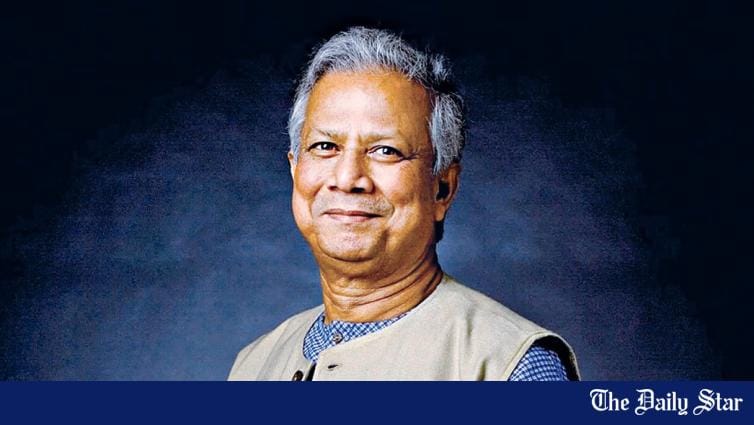Saif
Senior Member
- Joined
- Jan 24, 2024
- Messages
- 17,262
- Likes
- 8,334
- Nation

- Residence

- Axis Group


Japan sees Yunus’ visit as chance to deepen ties
Japan on Monday said Chief Adviser Prof Muhammad Yunus’ official visit to Japan is expected to ‘further strengthen’ the friendly relations between the two countries. The Chief Adviser will pay an ‘official working visit’ to Japan from May 28 to 31. During his stay in
Japan sees Yunus’ visit as chance to deepen ties
UNB
Published :
May 26, 2025 18:30
Updated :
May 26, 2025 18:30

Japan on Monday said Chief Adviser Prof Muhammad Yunus’ official visit to Japan is expected to ‘further strengthen’ the friendly relations between the two countries.
The Chief Adviser will pay an ‘official working visit’ to Japan from May 28 to 31.
During his stay in Japan, Prime Minister Ishiba Shigeru will hold a Bangladesh-Japan Summit meeting with Chief Adviser Prof Yunus.
The Chief Adviser will also attend the Nikkei Forum 30th ‘Future of Asia’.
This will be Prof Yunus’ first visit to Japan as the Chief Adviser, said the Japanese Ministry of Foreign Affairs.
Meanwhile, Japanese Ambassador to Bangladesh Saida Shinichi talked to a select group of reporters at his residence on various aspects of the visit.
Prof Yunus visited Japan multiple times, including the visit to attend the 2004 Nikkei Asia Prize award ceremony and the participation in the Ministry of Foreign Affairs’ Opinion Leader Invitation Program in 2007.
UNB
Published :
May 26, 2025 18:30
Updated :
May 26, 2025 18:30
Japan on Monday said Chief Adviser Prof Muhammad Yunus’ official visit to Japan is expected to ‘further strengthen’ the friendly relations between the two countries.
The Chief Adviser will pay an ‘official working visit’ to Japan from May 28 to 31.
During his stay in Japan, Prime Minister Ishiba Shigeru will hold a Bangladesh-Japan Summit meeting with Chief Adviser Prof Yunus.
The Chief Adviser will also attend the Nikkei Forum 30th ‘Future of Asia’.
This will be Prof Yunus’ first visit to Japan as the Chief Adviser, said the Japanese Ministry of Foreign Affairs.
Meanwhile, Japanese Ambassador to Bangladesh Saida Shinichi talked to a select group of reporters at his residence on various aspects of the visit.
Prof Yunus visited Japan multiple times, including the visit to attend the 2004 Nikkei Asia Prize award ceremony and the participation in the Ministry of Foreign Affairs’ Opinion Leader Invitation Program in 2007.








































